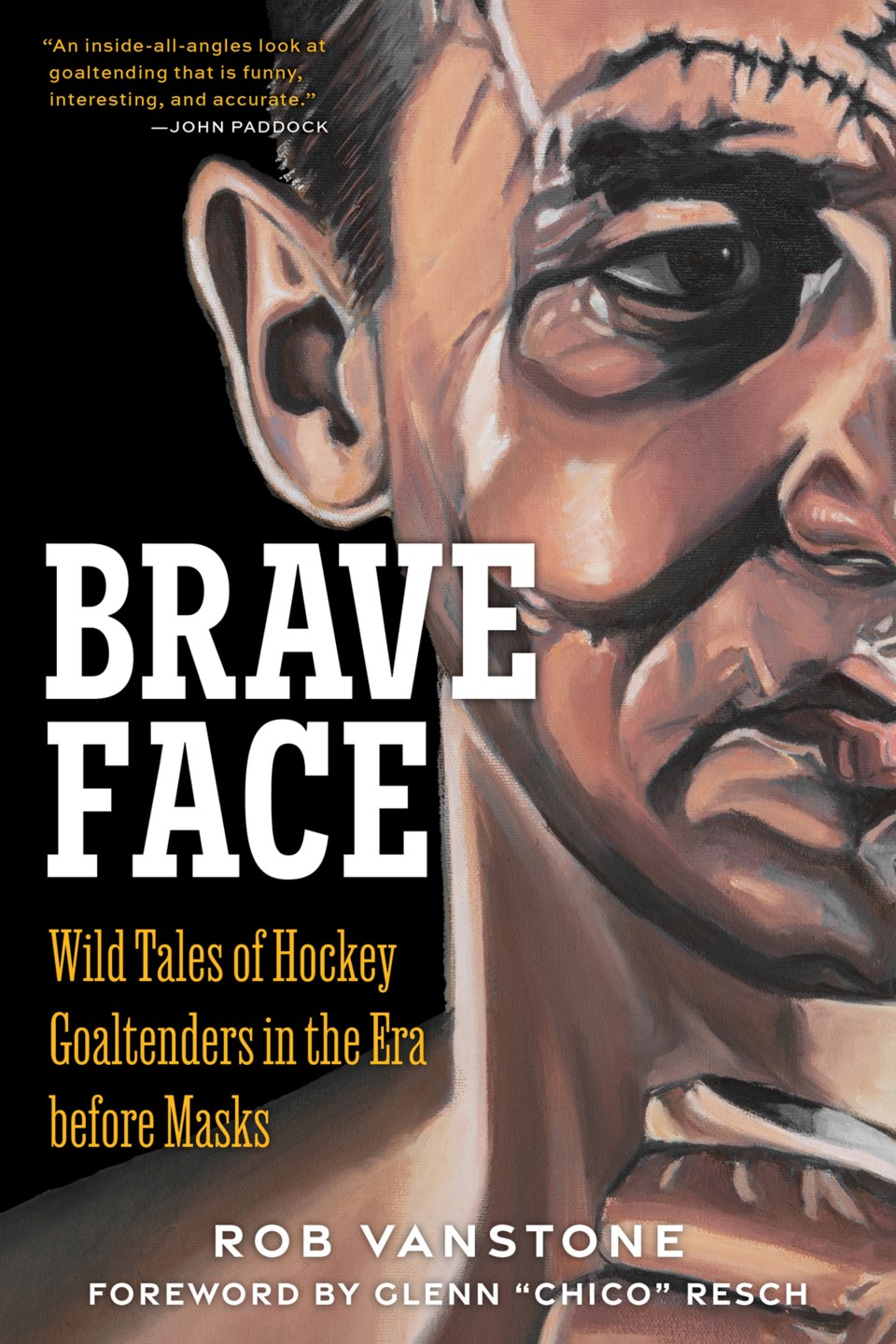YORKTON - If you are a hockey fan you probably recognize goaltenders are different from other players.
Their uniquely painted helmets tend to stand out to start with.
But even in the days before masks they were the brave-minded souls willing to stand before their team’s goal defying the likes of Maurice ‘The Rocket’ Richard and Bernie ‘Boom Boom’ Geoffrion to put a frozen disk past them even if that meant stopping the projectile with their unguarded face.
For a young Rob Vanstone that fearlessness drew his attention.
“Turn back to 1971, the first time I saw a game on television,” said the Saskatchewan author who recently released Brave Face: Wild Tales of Hockey Goaltenders in the Era Before Masks from Triumph books. “. . . I became a hockey fan right away.”
The game was the Vancouver Canucks taking on the Boston Bruins.
“I was intrigued by (Boston netminder) Gerry Cheevers and his mask with the stitches on it,” recalled Vanstone in a recent interview with Yorkton This Week.
The mask is iconic – one fans of a certain age are sure to remember.
Cheever’s mask was supposed to mark stitches he would have taken sans the protective mask.
By contrast “more than 400 stitches decorated Terry Sawchuk's face during his 16 years as a goaltender in the National Hockey League, the result of high-speed collisions and slap shots that whizzed directly at his skull. All in a day's work for an elite goalie of his era,” noted a teaser to the new book by Vanstone.
Then young Vanstone seen a Minnesota game on TV and there was future Hall of Fame goaltender Gump Worsley playing without a mask – one of the last to do so.
As a seven-year-old Vanstone was fascinated, gravitating to players such as Joe Daley and Andy Brown the other goaltenders still shunning a mask in the late 1970s.
While the interest was born all those years ago, it was just that an old interest, well at least until far more recently.
“Fast forward to 2020 and the pandemic was in full swing,” said Vanstone.
At the time he was in the newspaper trade and as that slowed due to COVID it was suggested if he had a ‘bucket list’ idea he run with it.
Initially that was a longer feature idea on – you guessed it – mask-less netminders.
“It sparked that interest from nearly 50 years ago,” said Vanstone.
Since he had penned a book on the Saskatchewan Roughriders for Triumph Books in the past Vanstone floated the goaltender book idea to them, and they said yes.
It went from 2000 words (for the newspaper) to 100,000 in two seconds,” he said.
But the word count was never an issue – other than reining in what he was producing.
“What’s to stop you from 140,000?” he asked. “It just became so fascinating.”
Vanstone said it was very much a journey of discovery and he learned about goaltenders fitting into his niche topic he had never heard of before.
“I didn’t know a fraction of what I thought I knew,” he said.
There was Dave Dryden who Vanstone said played an integral role in evolving the goalie mark to what it is today.
Not only was Dryden a huge resource for the book, but actually proof read it.
“What an amazing guy,” said Vanstone, adding he was fortunate for the connection as Dryden died in late 2022.
Of course that was the reality of the research, some pivotal goaltenders were still accessible; Cheevera in his 80s, Glenn Hall in his 90s, but others such as Jaques Plante and Johnny Bower were gone.
But ultimately Vanstone found the contacts to create his book.
“I was lucky I did it when I did,” he said.
Certainly the book has found an audience especially as a gift for the Christmas season that Vanstone noted just happens to coincide “with the guys of hockey season.”
In general terms Vanstone said he believes hockey fans gravitate to netminders which he added he sees “as the most unique position in sport” given the danger of facing shots from guys such as 1970s-era Bobby and Dennis Hull.
“Goaltenders have always been a unique study,” he added.






